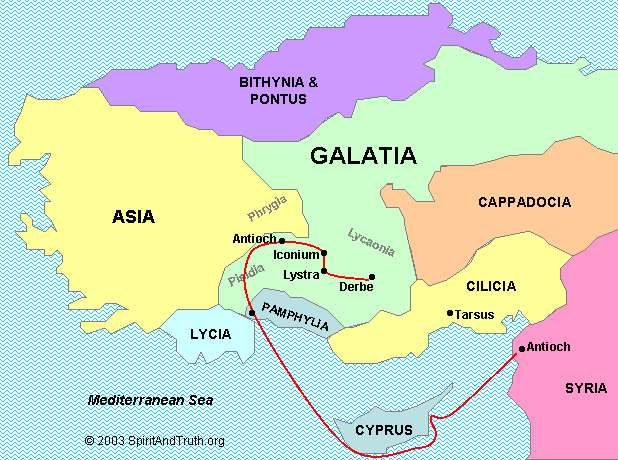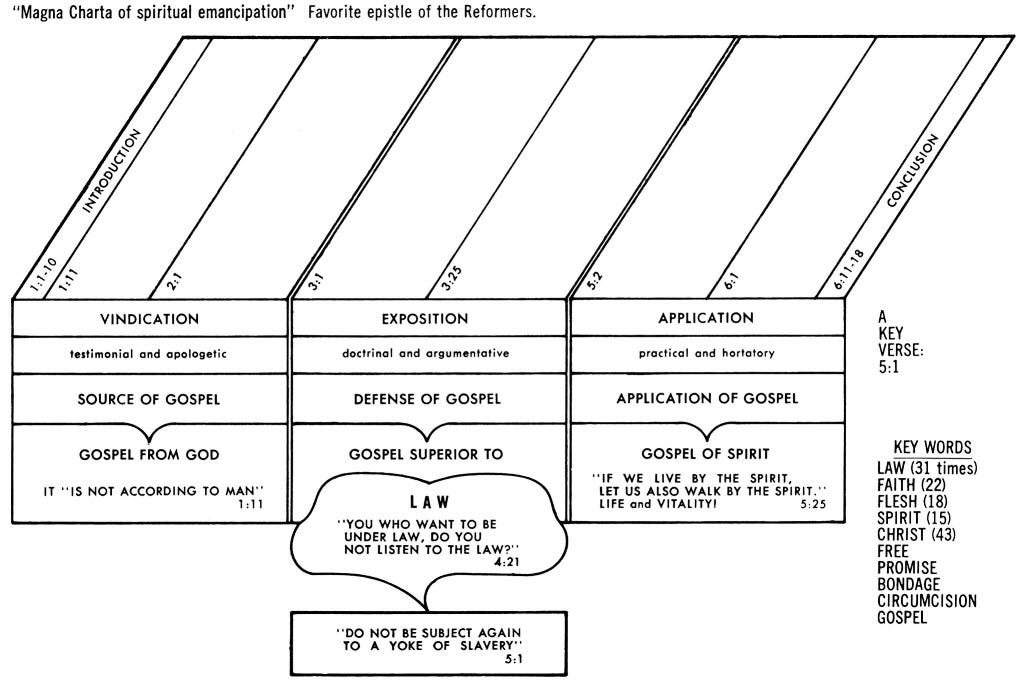An Exploration of Galatians: Introduction
Galatians 1:1-2, Acts 9:1-19 - An early letter to the early church
“Paul, an apostle (not sent from men nor through the agency of man, but through Jesus Christ and God the Father, who raised Him from the dead), and all the brethren who are with me, To the churches of Galatia:”
Galatians 1:1-2 NASB1995
I have now decided to tackle a devotional series for Heaven on Wheels examining the entire New Testament book of Galatians. I have done bits and pieces of other epistles attributed to Paul (e.g., Romans 8, 1 Corinthians 13) and I did a series on James and on 1 Peter. Now it’s time to really dig into this very early letter that has been called the “Magna Carta” or the “Declaration of Independence” of the Christian Reformation movement.
So what do we know about this epistle? Here’s a brief summary from Enduring Word:
Paul: The apostolic authorship of this magnificent letter is virtually unquestioned, even by more skeptical scholars.
Galatians has been called the “Declaration of Independence of Christian liberty.” The great reformer Martin Luther especially loved this letter; he called Galatians his “Catherine von Bora” after his wife; because, he said, “I am married to it.” Leon Morris wrote, “Galatians is a passionate letter, the outpouring of the soul of a preacher on fire for his Lord and deeply committed to bringing his hearers to an understanding of what saving faith is.”
Many scholars believe that Galatians was written in the late 40’s or the early 50’s. An approximate date of A.D. 50 is often given. It seems that Paul wrote this letter before the Jerusalem Council mentioned in Acts 15, because although he mentions several trips to Jerusalem, he makes no mention of the council. Because the Jerusalem Council of Acts 15 dealt with the exact issues Paul writes about, it would seem strange if the Council had already happened, yet he made no mention of it. If it is true that Galatians was written around A.D. 50, then Paul would have been a Christian for about 15 years, being converted on the road to Damascus around A.D. 35.
So who are the “Galatians”? The churches in Galatia were a combination of Jewish and Gentile believers, encouraged and visited by Paul and others in the missions documented in the book of Acts. Here is a map that was on Precept Austin showing the region in Asia Minor (present-day Türkiye) and some of the churches that are the likely targets of Paul’s letter, mostly in the southern region of the area:
I also found this great chart overview of Galatians on Precept Austin, which is from Jensen’s Survey of the NT. This shows that Galatians is written to show that the Gospel is from God, is superior to the law, and is applied through the Holy Spirit:
Paul makes it clear that he is not sent as an agent of men but his authority comes from Jesus, who appeared to him on the road to Damascus in Acts 9 in the familiar story that led him to belief:
“Now Saul, still breathing threats and murder against the disciples of the Lord, went to the high priest, and asked for letters from him to the synagogues at Damascus, so that if he found any belonging to the Way, both men and women, he might bring them bound to Jerusalem. As he was traveling, it happened that he was approaching Damascus, and suddenly a light from heaven flashed around him; and he fell to the ground and heard a voice saying to him, “Saul, Saul, why are you persecuting Me?” And he said, “Who are You, Lord?” And He said, “I am Jesus whom you are persecuting, but get up and enter the city, and it will be told you what you must do.” The men who traveled with him stood speechless, hearing the voice but seeing no one.
Saul got up from the ground, and though his eyes were open, he could see nothing; and leading him by the hand, they brought him into Damascus. And he was three days without sight, and neither ate nor drank. Now there was a disciple at Damascus named Ananias; and the Lord said to him in a vision, “Ananias.” And he said, “Here I am, Lord.” And the Lord said to him, “Get up and go to the street called Straight, and inquire at the house of Judas for a man from Tarsus named Saul, for he is praying, and he has seen in a vision a man named Ananias come in and lay his hands on him, so that he might regain his sight.” But Ananias answered, “Lord, I have heard from many about this man, how much harm he did to Your saints at Jerusalem; and here he has authority from the chief priests to bind all who call on Your name.”
But the Lord said to him, “Go, for he is a chosen instrument of Mine, to bear My name before the Gentiles and kings and the sons of Israel; for I will show him how much he must suffer for My name’s sake.” So Ananias departed and entered the house, and after laying his hands on him said, “Brother Saul, the Lord Jesus, who appeared to you on the road by which you were coming, has sent me so that you may regain your sight and be filled with the Holy Spirit.” And immediately there fell from his eyes something like scales, and he regained his sight, and he got up and was baptized; and he took food and was strengthened.
Acts 9:1-19 NASB1995
Paul was a chosen instrument of Jesus, to bear His name before the Gentiles and kings and the sons of Israel. His authority would (or at least should) be recognized and respected.
My next devotional examines Galatians 1:3-5, Paul’s apostolic greeting to the churches in Galatia.
Heaven on Wheels Daily Prayer:
Dear Lord - Thank You for designating Paul as an instrument of Your Gospel. Please help me to find ways to dig deep and truly understand Paul’s letter to Galatia. Amen.
Scripture quotations taken from the (NASB®) New American Standard Bible®, Copyright © 1960, 1971, 1977, 1995 by The Lockman Foundation. Used by permission. All rights reserved. lockman.org
Commentary from Enduring Word by David Guzik is used with written permission.
The personal testimony from Bruce Hurt of Precept Austin can be found Here.





